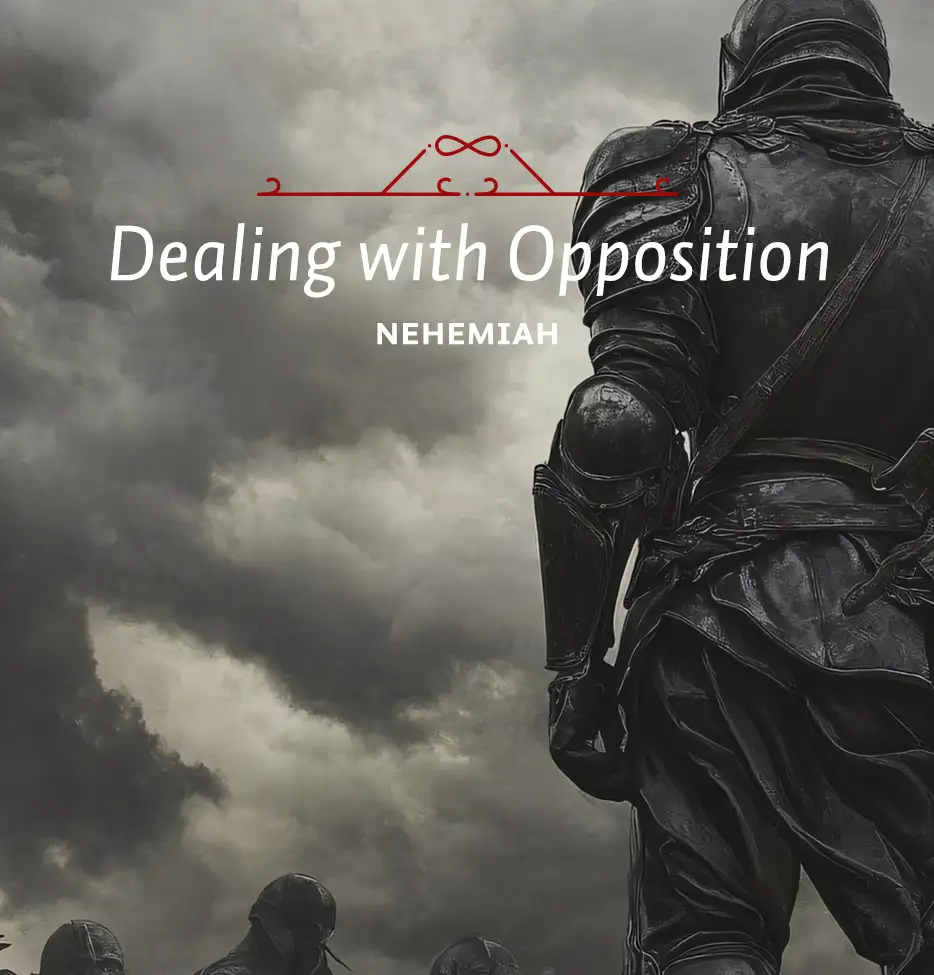Here is the third thing we need to see to appreciate the force of this second form of opposition.
3. It was effective. It is not surprising in light of the first two points that this form of opposition was effective, at least upon the people who lived near these enemies but who were helping to rebuild Jerusalem. They knew the strength of these foes and reported, apparently with genuine fear and discouragement, “Wherever you turn, they will attack us” (v. 12).
It was a critical point in the project, and the people probably would have abandoned the work were it not for Nehemiah. He had been praying. Prayer had provided him with balance. He knew the strength of this threat, but he also knew its limitations. Above all, he knew the strength of God, who he was sure was on his side to rebuild the wall.
In military terms Nehemiah must have known that it was unlikely that his enemies would attack the city in full force since he had the imposing authority of Artaxerxes behind him. If the coalition of the governors of Trans-Euphrates attacked him, they would be opposing Artaxerxes, the very thing they were accusing the Jews of doing. On the other hand, Nehemiah must have known that what we might call guerrilla warfare was likely. It would not take much of an effort for his enemies to sneak up on the city, surprise the builders and kill some, and then deny that they had anything to do with it. Besides he knew that anything of this nature would so demoralize the people that the work would stop and would never get going again.
What was Nehemiah to do? What he did was extremely wise. He dealt with the real threat, not the imagined one, and did so in a way which built the people’s low self-esteem and strengthened their resolve. Nehemiah turned Jerusalem into an armed camp. When the threat became known he responded by posting a guard day and night (v. 9). When the rumors of violence continued and began to have a demoralizing effect on morale he went further: 1) he stopped the work (cf. vv. 13, 15); 2) he armed the people (v. 13); and 3) he arranged the people in family groups at the most exposed places along the wall (v. 13). Dividing them into families corresponded with Israel’s traditional way of fighting and heightened each person’s awareness of the stakes. Nehemiah knew they would fight most fiercely when the lives of their own families were in jeopardy.
When his enemies learned of the Jews’ preparation and that their plot was frustrated, the pressure lessened and Nehemiah was able to return the workers to the walls. But he did not forget the threat. Therefore, 1) he divided the people into two groups, one of which would work and the other of which would be in readiness to fight at any time (even the workers carried arms, vv. 16-18); 2) he devised a plan for meeting an unexpected attack (vv. 18-20); 3) he accelerated the pace of the building (from dawn until the stars came out, v. 21); and 4) he kept the people in the city day and night (v. 23). Most important, throughout this period he continued to boost morale by reminding everyone that God would fight for them: “Don’t be afraid of them. Remember the Lord, who is great and awesome, and fight for your brothers, your sons and your daughters, your wives and your homes” (v. 14), and “Our God will fight for us!” (v. 20).
Nehemiah also stood with the people through it all. “Neither I nor my brothers nor my men nor the guards with me took off our clothes; each had his weapon, even when he went for water” (v. 23).
What a pattern for us when we are faced with opposition: prayer and persistence, faith and good works. But faith most of all. Nehemiah had many good traits, and he was a leader even by worldly standards. But what made him really great was his faith in God and his assurance that the God who had given him the task of rebuilding the wall would stand by him until the job was done. The apostle Paul wrote that God keeps at His work until the job is done: “Being confident of this, that he who began a good work in you will carry it on to completion until the day of Jesus Christ” (Phil. 1:6). We should know that he will enable us to carry our work to its completion too.






